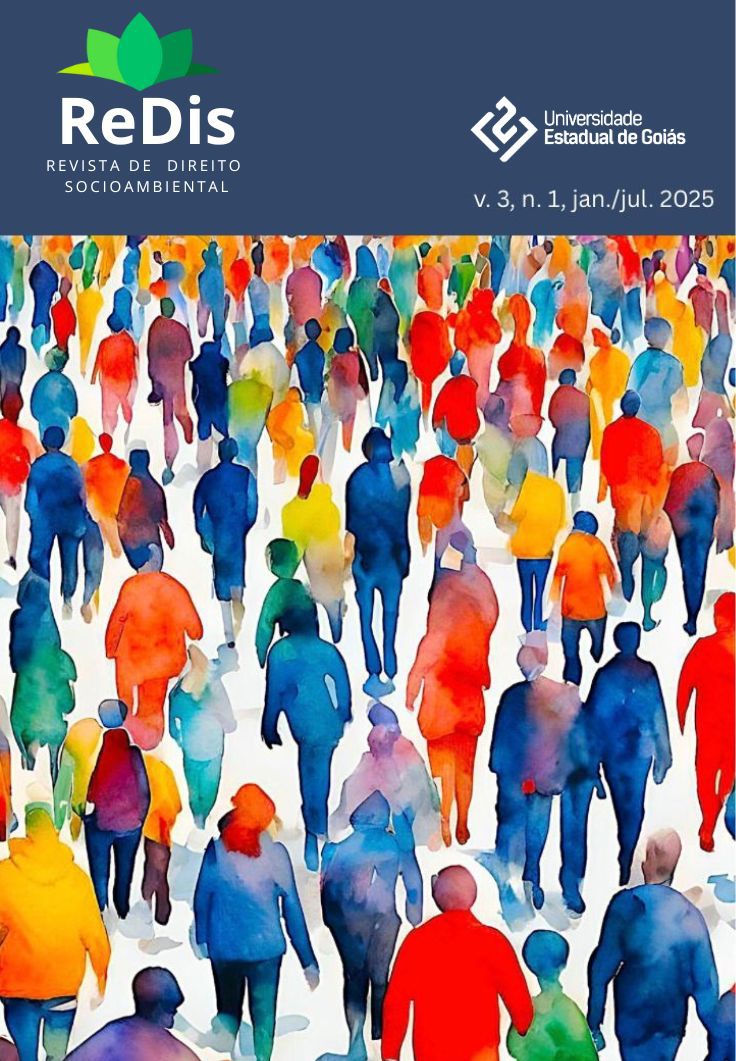AGROECOLOGY
THE QUEST FOR SUSTAINABILITY AND ENVIRONMENTAL PRESERVATION IN AGRICULTURE IN THE LIGHT OF LAW
Keywords:
agroecology, legal norms, sustainability, environmentAbstract
This article revolves around the central theme of agroecology from a legal perspective. Agroecology is a concept that seeks to align agricultural production with environmental preservation. The objective is to discuss how this practice can contribute to sustainability in agriculture through the use of more natural techniques that respect ecological balance. This work was conducted based on literature review and data analysis. In conclusion, we found that agroecology is an important tool for environmental preservation and conscious production, aiming to produce without harm, protect fauna, flora, water resources, promote local economy, and produce healthier foods, all of which are protected by regulations and laws.
References
ALTIERI, Miguel A. et al. Agroecologia: a dinâmica produtiva da agricultura sustentável. Editora da Universidade, Universidade Federal do Rio Grande do Sul, 2001.
ANTUNES, Paulo de Bessa. Direito ambiental. 14ª edição. Editora Atlas, São Paulo, 2012.
ALTIERI, M. A. Agroecology: the science of natural resource management for poor farmers in marginal environments. Agriculture, Ecosystems & Environment, v. 93, n. 1-3, p. 1-24, 2002
ALTIERI, Miguel A.; NICHOLLS, Clara I. Agroecology scaling up for food sovereignty and resiliency. Sustainable Agriculture Reviews: Volume 11, p. 1-29, 2012.
BARBIER, Edward B. A global green new deal: Rethinking the economic recovery. Cambridge University Press, 2010.
CAPRA, Fritjof. Conexões ocultas, as. Editora Cultrix, 2002.
DE SCHUTTER, Olivier. Promotion and Protection of All Human Rights, Civil, Political, Economic, Social and Cultural Rights, Including the Right to Development: Report of the Special Rapporteur on the Right to Food, Olivier De Schutter: Building Resilience, a Human Rights Framework for World Food and Nutrition Security. New York: United Nations General Assembly, 2008.
FRANCIS, Charles et al. Agroecology: The ecology of food systems. Journal of sustainable agriculture, v. 22, n. 3, p. 99-118, 2003.
HAWKEN, Paul. Capitalismo natural. Editora Cultrix, 2000.
JACOBS, Michael. Economía verde: medio ambiente y desarrollo sostenible. Bogotá, CO: Tercer Mundo Ed., 1995.
LEFF, Enrique. Saber Ambiental. Sustentabilidade, Racionalidade, Complexidade, Poder. Petrópolis, RJ, Vozes/PNUMA, 2001.
GUIMARÃES, Mauro. Educação ambiental: no consenso um embate?. Papirus Editora, 2007.
MOWFORTH, Martin; MUNT, Ian. Tourism and sustainability: Development, globalisation and new tourism in the third world. routledge, 2015.
PIMENTEL, David; BURGESS, Michael. An environmental, energetic and economic comparison of organic and conventional farming systems. Integrated Pest Management: Pesticide Problems, Vol. 3, p. 141-166, 2014.
RIBEIRO, Helena. Saúde pública e meio ambiente: evolução do conhecimento e da prática, alguns aspectos éticos. Saúde e Sociedade, v. 13, p. 70-80, 2004.
ROSSET, Peter M.; MARTÍNEZ-TORRES, Maria Elena. Rural social movements and agroecology: context, theory, and process. Ecology and society, v. 17, n. 3, 2012.
VEIGA, José Eli. Desenvolvimento Sustentável–O Desafio do Século XXI São Paulo. Editora Garamond Universitária, 2005.
PRETTY, Jules N. (Ed.). Sustainable agriculture and food. Earthscan, 2008.
SACHS, Ignacy. Caminhos para o desenvolvimento sustentável. Rio de Janeiro: Garamond, 2000. 95 p.
SIMÓN REARDON, Juan Alberto; PÉREZ, Reinaldo Alemán. Agroecology and the development of indicators of food sovereignty in Cuban food systems. Journal of Sustainable Agriculture, v. 34, n. 8, p. 907-922, 2010.
WEZEL, Alexander et al. Agroecology as a science, a movement and a practice. A review. Agronomy for sustainable development, v. 29, p. 503-515, 2009.
Published
Issue
Section
License
Copyright (c) 2025 Social and Environmental Law Journal

This work is licensed under a Creative Commons Attribution-NonCommercial-NoDerivatives 4.0 International License.
The author(s) agree(s) and declare(s) that:
- They have provided accurate and truthful information and have not created a false identity or used subterfuge with the intent to deceive individuals, institutions, or obtain benefits of any kind;
- They are solely responsible for any and all information provided and are subject to administrative and legal consequences arising from inaccurate or false statements (Articles 298 and 299 of the Brazilian Penal Code) that may cause harm to the Journal or third parties;
- They have not used the Journal for illegal, unlawful, or prohibited purposes, nor for actions that violate the privacy or rights of third parties, including copyright or intellectual property rights.












